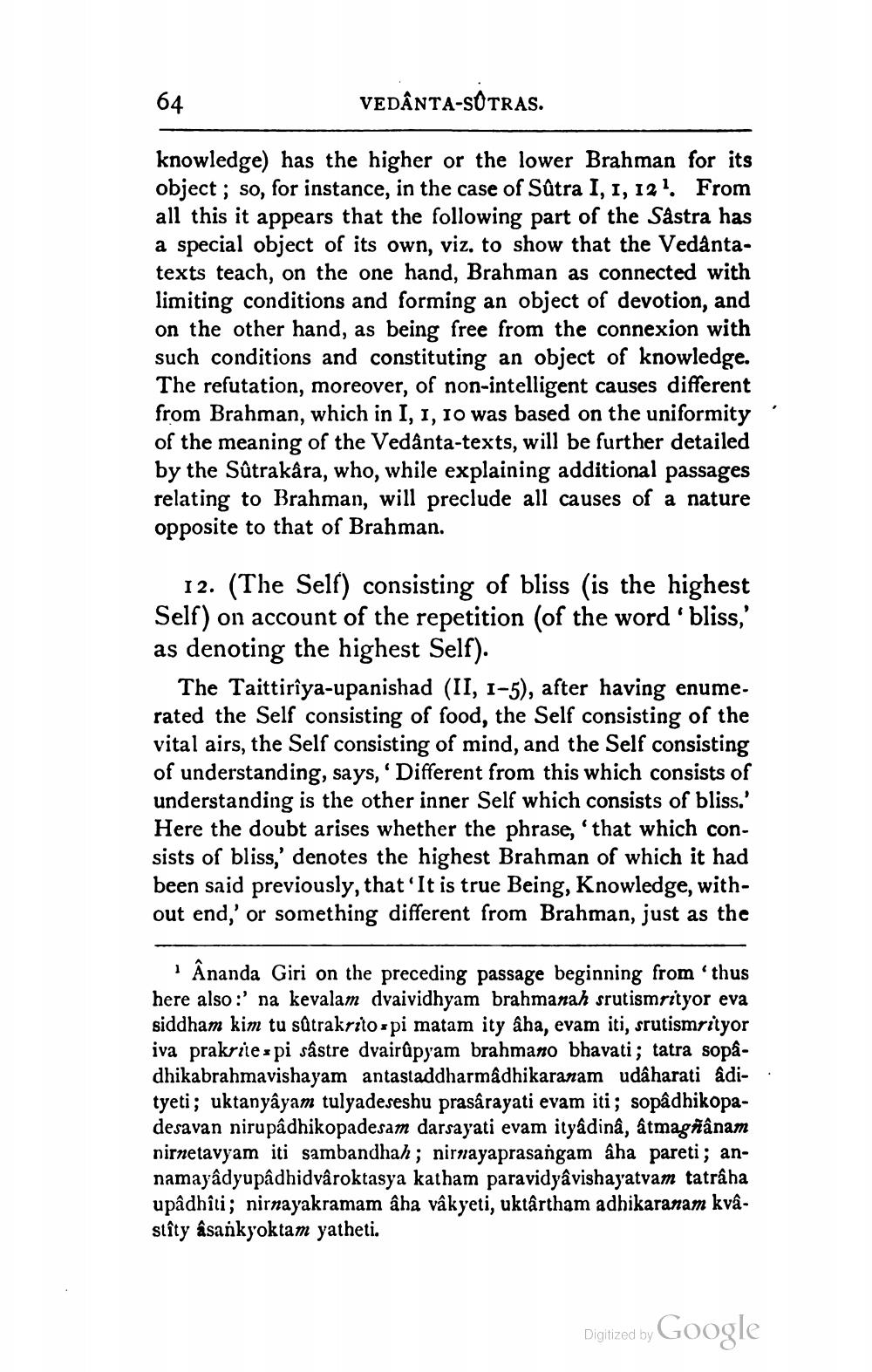________________
64
VEDÂNTA-SOTRAS.
-
knowledge) has the higher or the lower Brahman for its object; so, for instance, in the case of Sätra I, 1, 121. From all this it appears that the following part of the Sastra has a special object of its own, viz. to show that the Vedantatexts teach, on the one hand, Brahman as connected with limiting conditions and forming an object of devotion, and on the other hand, as being free from the connexion with such conditions and constituting an object of knowledge. The refutation, moreover, of non-intelligent causes different from Brahman, which in I, 1, 10 was based on the uniformity of the meaning of the Vedanta-texts, will be further detailed by the Sûtrakâra, who, while explaining additional passages relating to Brahman, will preclude all causes of a nature opposite to that of Brahman.
12. (The Self) consisting of bliss (is the highest Self) on account of the repetition (of the word 'bliss,' as denoting the highest Self).
The Taittirîya-upanishad (II, 1-5), after having enume. rated the Self consisting of food, the Self consisting of the vital airs, the Self consisting of mind, and the Self consisting of understanding, says, 'Different from this which consists of understanding is the other inner Self which consists of bliss.' Here the doubt arises whether the phrase, 'that which consists of bliss,' denotes the highest Brahman of which it had been said previously, that`It is true Being, Knowledge, without end,' or something different from Brahman, just as the
Ânanda Giri on the preceding passage beginning from 'thus here also :' na kevalam dvaividhyam brahmanah srutismrityor eva siddham kim tu sūtrakrito s pi matam ity âha, evam iti, srutismrityor iva prakriie = pi sâstre dvairûpyam brahmano bhavati; tatra sopa - dhikabrahmavishayam antastaddharmadhikaranam udâharati âdi-. tyeti; uktanyâyam tulyadeseshu prasarayati evam iti; sopâdhikopadesavan nirupâdhikopadesam darsayati evam ityâdina, atmagñânam nirnetavyam iti sambandhah; nirnayaprasangam âha pareti; annamayâdyupâdhidvâroktasya katham paravidyâ vishayatvam tatraha upâdhili; nirnayakramam âha vâkyeti, uktârtham adhikaranam kvâstîty âsankyoktam yatheti.
Digitized by
Digized by Google




